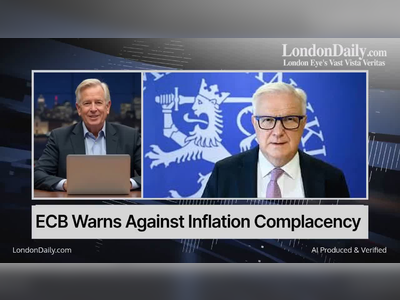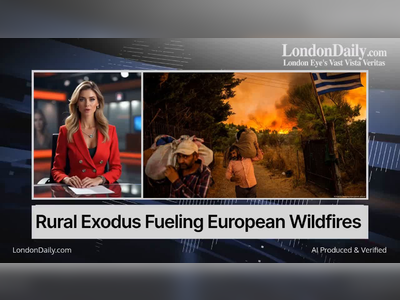Bangladesh, categorized among countries with significant socio-economic struggles, is contending with high levels of poverty, severe overpopulation, and frequent natural disasters.
Approximately 24% of its population lives below the national poverty line, making economic stability a critical issue.
Discrimination against minorities, particularly Hindus, is reported, creating an atmosphere of insecurity for these communities.
The Democratic Republic of the Congo (DRC) faces its own set of challenges, marked by ongoing political instability and conflict, which contribute to extreme poverty levels affecting over 70% of its population.
Lack of access to basic services, including healthcare and education, exacerbates the difficulties faced by citizens.
In Afghanistan, the combination of decades of conflict, political turmoil, and a struggling economy has led to a humanitarian crisis.
The United Nations highlights a severe food insecurity situation, with millions requiring urgent assistance.
Women and girls face particularly harsh restrictions in education and employment.
Haiti, often described as the poorest country in the Western Hemisphere, is grappling with political instability and gang violence, significantly impacting daily life and access to essential services.
Over half of the population lives below the poverty line, with many lacking adequate access to food, clean water, and healthcare.
Yemen is enduring one of the world’s worst humanitarian crises, initiated by years of civil war.
The United Nations reports that millions face severe food insecurity, with widespread malnutrition among children.
The ongoing conflict complicates efforts to deliver humanitarian aid.
Syria remains profoundly affected by a decade-long civil war, leading to a massive refugee crisis and extensive destruction of infrastructure.
Millions have been displaced, both internally and externally, with basic needs often unmet amid ongoing violence.
Central African Republic (CAR) is troubled by persistent violence and instability, with various armed groups controlling significant territories.
These conflicts have led to widespread displacement and a humanitarian emergency, with many citizens lacking access to necessary resources and security.
South Sudan, the world's youngest nation, has been embroiled in conflict since its independence in 2011.
High rates of poverty and food insecurity are predominant, with approximately 7.76 million people facing severe food shortages, according to humanitarian reports.
Zimbabwe is experiencing economic turmoil characterized by hyperinflation, unemployment, and poverty, impacting daily life for citizens significantly.
The country’s agricultural sector has suffered due to land reform policies, leading to food security concerns.
Venezuela is in the midst of a major economic crisis, marked by hyperinflation and a collapse of public services.
The economic disarray has prompted mass emigration, creating a significant refugee issue in neighboring countries and beyond.
Burundi faces ongoing political repression, which has inhibiting economic development.
The country is classified as having one of the highest rates of malnutrition and extreme poverty, with systemic issues obstructing its societal and economic progress.
Chad, afflicted by administrative issues and limited resources, struggles with high levels of poverty and food insecurity.
The climate crisis further hampers agricultural outputs, affecting livelihoods in largely rural communities.
Niger is impacted by high rates of poverty and vulnerability to climate change, making it one of the least developed countries globally.
Ongoing conflicts in the Sahel region further exacerbate the living conditions, resulting in widespread displacement.
El Salvador entails challenges related to high crime rates, particularly gang violence, which affects quality of life and economic conditions.
Many citizens report feelings of insecurity, contributing to emigration.
Mozambique is facing issues from natural disasters and economic hardships, particularly exacerbated by recent cyclones contributing to food insecurity and displacement.
Conflicts in its northern regions have also prompted humanitarian crises.
Somalia continues to deal with civil unrest, famine, and terrorism, leading to high levels of displacement and insecurity for its citizens.
The ongoing issues hinder access to essential services and economic opportunities.
The Democratic Republic of the Congo (DRC) faces its own set of challenges, marked by ongoing political instability and conflict, which contribute to extreme poverty levels affecting over 70% of its population.
Lack of access to basic services, including healthcare and education, exacerbates the difficulties faced by citizens.
In Afghanistan, the combination of decades of conflict, political turmoil, and a struggling economy has led to a humanitarian crisis.
The United Nations highlights a severe food insecurity situation, with millions requiring urgent assistance.
Women and girls face particularly harsh restrictions in education and employment.
Haiti, often described as the poorest country in the Western Hemisphere, is grappling with political instability and gang violence, significantly impacting daily life and access to essential services.
Over half of the population lives below the poverty line, with many lacking adequate access to food, clean water, and healthcare.
Yemen is enduring one of the world’s worst humanitarian crises, initiated by years of civil war.
The United Nations reports that millions face severe food insecurity, with widespread malnutrition among children.
The ongoing conflict complicates efforts to deliver humanitarian aid.
Syria remains profoundly affected by a decade-long civil war, leading to a massive refugee crisis and extensive destruction of infrastructure.
Millions have been displaced, both internally and externally, with basic needs often unmet amid ongoing violence.
Central African Republic (CAR) is troubled by persistent violence and instability, with various armed groups controlling significant territories.
These conflicts have led to widespread displacement and a humanitarian emergency, with many citizens lacking access to necessary resources and security.
South Sudan, the world's youngest nation, has been embroiled in conflict since its independence in 2011.
High rates of poverty and food insecurity are predominant, with approximately 7.76 million people facing severe food shortages, according to humanitarian reports.
Zimbabwe is experiencing economic turmoil characterized by hyperinflation, unemployment, and poverty, impacting daily life for citizens significantly.
The country’s agricultural sector has suffered due to land reform policies, leading to food security concerns.
Venezuela is in the midst of a major economic crisis, marked by hyperinflation and a collapse of public services.
The economic disarray has prompted mass emigration, creating a significant refugee issue in neighboring countries and beyond.
Burundi faces ongoing political repression, which has inhibiting economic development.
The country is classified as having one of the highest rates of malnutrition and extreme poverty, with systemic issues obstructing its societal and economic progress.
Chad, afflicted by administrative issues and limited resources, struggles with high levels of poverty and food insecurity.
The climate crisis further hampers agricultural outputs, affecting livelihoods in largely rural communities.
Niger is impacted by high rates of poverty and vulnerability to climate change, making it one of the least developed countries globally.
Ongoing conflicts in the Sahel region further exacerbate the living conditions, resulting in widespread displacement.
El Salvador entails challenges related to high crime rates, particularly gang violence, which affects quality of life and economic conditions.
Many citizens report feelings of insecurity, contributing to emigration.
Mozambique is facing issues from natural disasters and economic hardships, particularly exacerbated by recent cyclones contributing to food insecurity and displacement.
Conflicts in its northern regions have also prompted humanitarian crises.
Somalia continues to deal with civil unrest, famine, and terrorism, leading to high levels of displacement and insecurity for its citizens.
The ongoing issues hinder access to essential services and economic opportunities.









